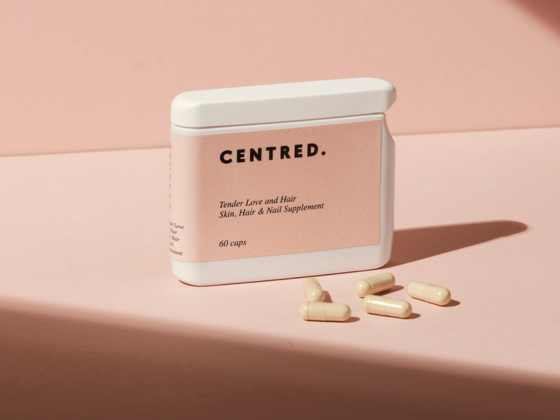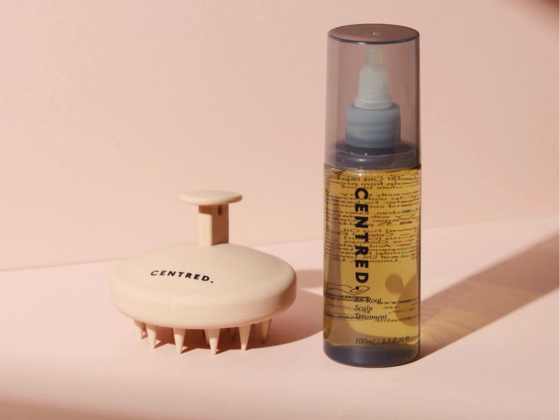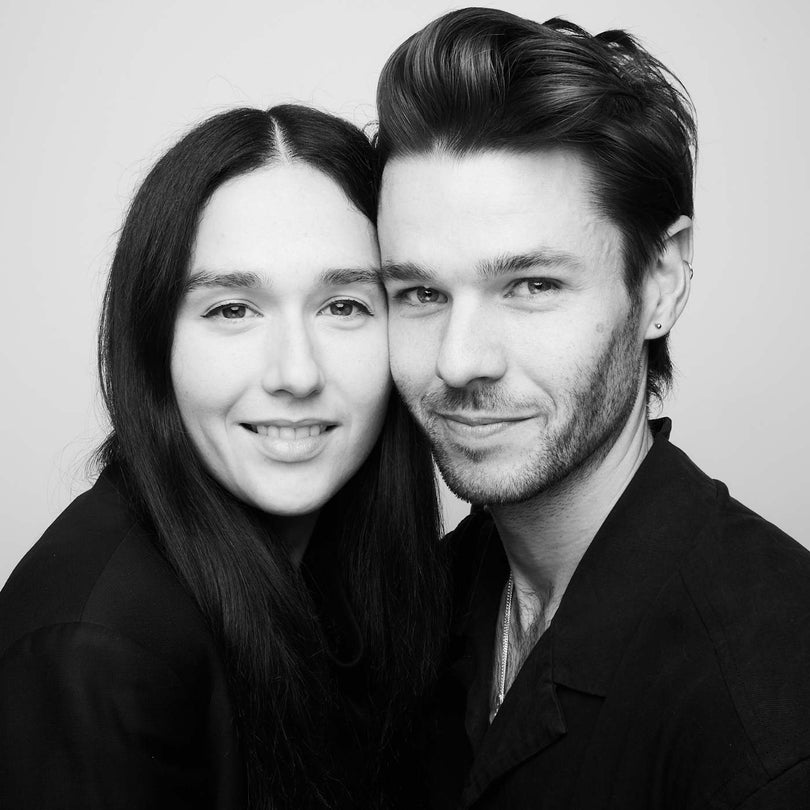How to treat male pattern hair loss naturally

WHAT IS MALE PATTERN HAIR LOSS AND HOW CAN I COMBAT IT NATURALLY?
Male pattern hair loss is extremely common. Although there may be other causes for hair loss in men, male pattern baldness is certainly the most common. I have friends who had lost almost all of the their hair by the time they were in their mid 20's and there seems to be an increasing number of younger people struggling with hair loss. I wanted to write a blog post explaining the causes of male pattern hair loss and shed some light on the natural methods that are available to help combat the condition whilst getting the conversation going around the subject with a goal of trying to break down the stigmas attached to hair loss. First of all, lets look at what male pattern hair loss is.
Male Pattern Hair Loss : The Science
Male pattern hair loss is generally thought to be genetic. Meaning if you father had hair loss early on in life ( late teens onwards ) then you are more likely to be predisposed to have hair loss too. But what does that really mean?
The first thing I want to really get across is that this doesn't have to be the case. You are not always just a victim of genes, you can take action and as always, prevention is better than cure.
If you are in your twenties and worried you may be predisposed to follicle sensitivity, there are many natural things you can do to help prevent the onset by taking care of your scalp and staying healthy.
Does diet impact on male hair loss?
Lack of nutrition and long term stress make the matter infinitely worse. The science of male pattern hair loss is due to an androgen hormone (sex hormone) known as DHT (Dihydrotestosterone).
Androgen hormones are responsible for the development of what are considered as male characteristics, such as body hair. DHT is formed from Testosterone.
An enzyme in the body called 5 Alpha Reductase converts Testosterone in to Dihydrotestosterone.
These hormones, although present in women too, are present in much higher levels in men and are responsible for the development of the male genitalia throughout puberty and later in life helping to maintain healthy muscle mass and in sexual reproduction.
The main point I want to get across about DHT and genetics is this : If you are predisposed to male pattern hair loss, as in it runs in your family, that means you are genetically more likely to have higher levels of DHT and have follicle sensitivity. If this is the case, doing nothing about it will inevitably lead to the same results your father had, if he did nothing about it either. But if you want to do something about it and you are predisposed, the very best case scenario is to start taking care of it in your twenties.
If you are reading this and your in your 30's 40's or 50's it doesn't mean there's nothing you can do, it's just about improving what is possible at the stage your at, that is the cold hard facts.
What has DHT got to do with hair loss?
Now we know what DHT is and what it does lets now look at why it is responsible for causing hair loss. The hair follicles that lay in the scalp have receptors that DHT bind to causing the hair follicle to gradually 'miniaturise' (shrink) and even make the hair follicle stop producing hair at all.
If you are genetically predisposed to male pattern baldness it is highly likely that you have higher levels of DHT and it is easier for DHT to bind to the receptors on the hair follicle.
Around 10% of Testosterone in all adults is converted into DHT which means Testosterone levels are directly linked to DHT levels. Testosterone levels in men go up during puberty and thus so do DHT levels meaning the very early stages of male pattern hair loss are taking effect and indeed some young men start to show signs of thinning in the late teens and early twenties.
For some, the process is a much more gradual one with the effects of the DHT binding to the hair follicles being gradual, progressing and worsening in 30' and 40's.
Left completely untreated DHT will gradually impede the hair follicles growth, however there are ways to help reduce the effects of DHT on the hair follicle.
What is the impact of stress on male hair loss?
Another important factor when it comes to hair loss which is outside of genetics to some degree however still involves DHT is stress.
Stress leads to an increase in DHT production due to higher levels of Adrenaline Testosterone and Cortisol, (the stress hormone) which can increase Testosterone levels too.
Managing stress levels can help to counteract this issue and as well as helping to prevent the onset of a receding hair line, can have amazing health benefits too such as reducing blood pressure and protecting the body from disease.
Introducing a holistic approach to countering male hair loss
At CENTRED we approach hair health holistically which is why everything we do is to try and reduce stress, promoting self care and a calm, balanced state of mind.I don't think that this is talked about enough amongst men.
Certainly in women's health and wellbeing, the words self care and wellness are used all the time but not so much in Men's health.
We want to promote self care for all and the world would be a better kinder place if more men and women alike learned to love themselves and take responsibility for their general wellbeing by managing stress, improving diet and practicing self care.
Understanding the hair growth cycle is a great way to discover the best ways of maximising hair growth.
What is the hair growth cycle and how does it impact male hair loss?
Hair growth is a cycle that has stages -
Anagen stage - The active growth stage. The hair follicle is attached to the blood vessel that feeds it nutrients via the blood nutrient supply.
Catagen stage - The transitional stage. The hair follicle stops actively producing hair as it gradually detaches from the blood vessel and begins its resting stage.
Telogen - The Telogen stage is when the hair follicle is dormant, usually for around 2-4 months before it is shed from the scalp as a new hair begins it's growing cycle with the follicle re-attaching to the blood vessel.
The Active growth stage normally lasts around 7 years and determines how long and thick hair can grow depending also on the rate of growth. The average growth rate is around 1/2 an inch per month. This means the variables in hair growth are how long the follicle is in its active growth stage for and the rate it grows at in that period.

What are the recommended treatments for Male Pattern Hair loss?
Two drugs exist for treating male pattern hair loss and although they do help with the condition, both come with some not very pleasant side effects including reduced libido, erectile dysfunction, skin rash and even a higher risk in developing prostate cancer.
Minoxidil (Rogain) is a prescribed topical treatment usually applied to the scalp that works to increase the vascular capacity of the blood vessels in the scalp.
Finasteride is a prescribed oral tablet that works to reduce levels of DHT in the body.
My personal take on these approaches is that like any manufactured drug, they may have some proven benefits but can also lead to complications and the idea of altering the body's chemistry sounds like risky territory. I can see how guys can be attracted to try these options as lets face it, losing hair is an emotional experience however I really want to shed light on the natural methods that can be used to help to combat the effects of DHT without messing around with hormones synthetically.
Are there natural remedies to treat male hair loss?
First of all I think it's really important to be honest and say that the results you can achieve depends on what kind of hair loss you have, what age you are and how much DHT has already deteriorated the hair follicles.
The treatments and products I'm sharing below can do several things but the key is long term consistency.
As the hair growth cycle is a slow one, it generally takes between 3-6 months before results become visible but remember, the key is prevention so even if you are not showing signs of thinning, doing treatments like this will help to prevent the damage of DHT, prevent hair loss and give you a much better head of hair later in life.What to expect from natural remedies -
1. Help to improve the hair thickness, rate of growth, and quality of the hair that already exists on the head.
2. Where possible to do so, can increase the number of follicles in the scalp and the general size and health of the follicle can be improved.
3. Slow down and potentially reverse the effects of DHT by helping to regulate levels of DHT.
4. Maximise hair growth potential by keeping the hair follicle in its active growth phase for longer and also shortening the Telogen stage.

What oils do I need to use to combat hair loss?
Essential oils for hair loss - Essential Oils have some astounding health benefits and using them topically on the scalp has been known to reduce hair loss, improve hair growth and take care of scalp issues like Dandruff, Psoriasis and Dry Scalp.
This is because many essential oils have properties such as increasing blood flow to the area applied as well as being nourishing by balancing moisture and even have Anti Microbial, Anti Fungal, Anti Septic and Anti Inflammatory properties too. I think Essential oils are a fantastic option for combatting hair loss naturally and there have been some significant studies showing the effectiveness of using essential oils to combat Androgenic Alopecia (Pattern hair loss). One such study showed that Rosemary Oil was just as effective as Minoxidil at increasing the hair count after 6 months in a human trial of patients with Androgenic Alopecia.
Some of the best oils for improving hair growth -
Peppermint Oil
- Vasodilating
- Increases blood circulation
- Anti-inflammatory Invigorating (Menthol)
Rosemary Oil
- Nerve regenerative
- Increases blood circulation
- Anti inflammatory
Tea Tree Oil
- AntiBacterial
- Anti-Inflammatory
- Anti Fungal
- Anti Viral
What else can you do to combat hair loss?
Scalp Massage
Another amazing natural and completely free treatment to help prevent hair loss is scalp massage. We encourage scalp massage as a regular self care act for helping to exfoliate the scalp and increase blood circulation to the hair follicles. Combining scalp massage with our En-Root Scalp Treatment is an amazing way to keep the scalp healthy, prevent hair loss and promote new hair growth.
As Rosemary Oil, one of the essential oils found in our treatment, was found to be as effective as Minoxidil (Rogain) it seems like a far greater way to naturally combat hair loss without the potential nasty side effects.
Stress Management
Stress management is something we at CENTRED really promote. There are amazing health benefits involved with learning to manage and reduce stress not least that it will help to avoid hair loss but also more serious conditions such as diabetes and cardiovascular diseases too. Read our guide on how to reduce stress here
Improve Nutrition
Diet plays a huge role in hair growth. As the follicles rely on the nutrients it is fed by the blood in order to grow, increasing the key nutrients known to help improve hair growth is a great way of maximising hair growth potential.
We advise on eating a healthy and varied diet of whole foods including enough protein for your weight alongside a daily supplement like our Tender Love & Hair supplement that is packed with Vitamins, Herbs and Amino Acids for helping to encourage new hair growth whilst supporting the immune system and increasing energy levels.
Bamboo extract - Silica found in Bamboo is a vital mineral for strong healthy hair, boosting strength, shine and suppleness.Biotin - Plays a vital role in helping the body to convert nutrition, particularly Amino Acids which are the building blocks of protein and what hair is made of.
Aloe Vera - Known for its hair growth capabilities Aloe Vera is also one of natures finest healers. Repairs skin cells in the scalp.
Amino Acids - Hair is made of Keratin, a protein of which Amino Acids are the building blocks and vital for the creation of keratin.
Zinc - vital for strengthening the immune system and is highly regarded from improving the health of hair, skin and nails.
Iron - Vital for the production of red blood cells. Lack of Iron can cause severe tiredness and lead to hair loss.
Vitamin C - A powerful Anti-Oxident known for improving the body's ability to absorb nutrients, particularly Iron.
In summary, taking good general care of your hair and scalp and focusing on a healthy diet and positive mindset are the best things you can do to try and avoid hair loss and maximise hair growth potential and in my view, using these natural methods are much kinder to the body than the drugs available on the market.
As always, it should be about eduction so the is an open conversation about mens health and wellbeing.
There are many many benefits to be gained by encouraging men to take more care of themselves and i feel that Self Care and wellness are not terms reserved solely for women.
There is no shame in men taking care of themselves and in fact the positive impact on improving general wellbeing and mental health could have an amazing impact on society and help reduce the strain on the NHS of certain preventable illnesses.
If you have any questions or require any help for hair loss solutions, scalp concerns or want some more advice on where to start on improving wellness then drop us a line at hello@wearecentred.com



